-
IFRF Conference 2025: Sustainable and safe industrial combustion – sponsored by Air Liquide, Rina, Sulzer Chemtech and Suntec
Starts at
-
-
Location
IFRF Conference 2025: Sustainable and safe industrial combustion - sponsored by Air Liquide, Rina, Sulzer Chemtech and Suntec
-
We’re excited to announce that on 17th -19th June 2025 the IFRF will hold its first full, in-person conference since 2018.
The IFRF Conference 2025 will be our 20th conference since the IFRF was founded in 1948. As a world-renowned centre for steelmaking and high-temperature industries, as well as the current IFRF headquarters, Sheffield is an ideal venue to bring together delegates from across the world.
Who should attend?
The conference theme – ‘sustainable and safe industrial combustion’– echoes the key objective of IFRF and has direct relevance to practitioners across a wide range of industrial sectors, including:
- Power generation
- Iron, steel and aluminium production
- Oil and gas
- Refining and petrochemicals
- Glassmaking
- Ceramics production
- District heating and cooling
- Cement production
- Lime and minerals processing
Date
Tuesday 17th June – Thursday 19th June 2025.
Venue
Sheffield Town Hall, Pinstone Street, Sheffield S1 2HH, UK.
What to expect
Hosted in Sheffield, UK – the current IFRF headquarters – the conference promises to be an invigorating and exciting event, including:
- A keynote speech each day from combustion experts in research and industry
- Tour of the Energy Innovation Centre’s state-of-the-art facilities, home to the Translational Energy Research Centre (TERC) and Sustainable Aviation Fuels Innovation Centre (SAF-IC) – Tour now full.
- Poster sessions
- Interactive panel discussions
- Paper presentations (to be collated in a special edition of Industrial Combustion Journal)
- EU project dissemination sessions
- A special half-day session on significant demonstration projects
- Networking opportunities with fellow researchers, practitioners, and industry professionals
- A gala dinner at Inox at the University of Sheffield
Keynote speakers
Jörg Leicher, Research Engineer / Combustion Specialist | Gas- und Wärme-Institut Essen e. V.
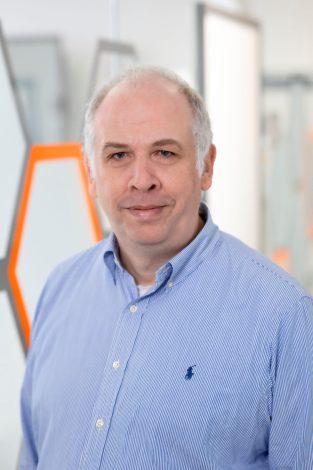
Jörg Leicher studied Mechanical Engineering at the Ruhr University Bochum, Germany. He received a Ph.D. in 2006 for his work on the numerical modelling of combustion processes. From 2007 to 2008, he worked as a Post-Doc. at the Institut Français du Pétrole (IFP) in Lyon, France, before joining ANSYS Germany in Munich as a CFD support engineer. Since 2009, he has been working in the Department of Industrial Combustion Technology of Gas- und Wärme-Institut Essen e. V. (GWI) where he is currently in charge of the Numerical Simulations Group. GWI is a non-profit independent German research organization which focuses on applied research into the utilization of gaseous fuels, and a preferred research partner of IFRF.
Mr. Leicher’s professional interests include the modelling of industrial combustion processes, the impact of natural gas quality on industrial gas-fired applications and the use of alternative fuels such as hydrogen, ammonia, biogas or syngases in industrial furnaces and power plants. He is a member of several national and international committees for issues of gas utilization, natural gas quality and renewable gases.
Anna Domènech, Head of Innovation & Industrial Engineer at Celsa
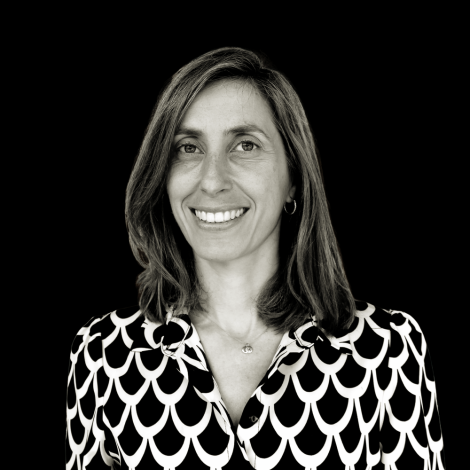
Anna Domènech, an Industrial Engineer with a master’s in International Business Management, brings 14 years of expertise in funding and innovation management to the table. Since 2021, she has served as the Head of Innovation at CELSA Group, spearheading the coordination of innovation initiatives aimed at realizing the Group’s Net Positive objectives across their business units in Spain, France, the UK, Poland, and the Nordic countries.
Anna’s foray into innovation commenced during her six-year consultancy tenure in Brussels, where she specialized in guiding clients through the intricacies of the European innovation landscape and securing vital grants.
In her preceding role, spanning the four years leading up to her current position at CELSA, Anna managed Nissan Europe’s participation in collaborative projects funded by both national and European agencies. Her efforts played a pivotal role in driving innovation within Nissan’s European factories, research centers, and business units.
Louis Ricci, R&D Director at Fives, Energy | Combustion Business Unit
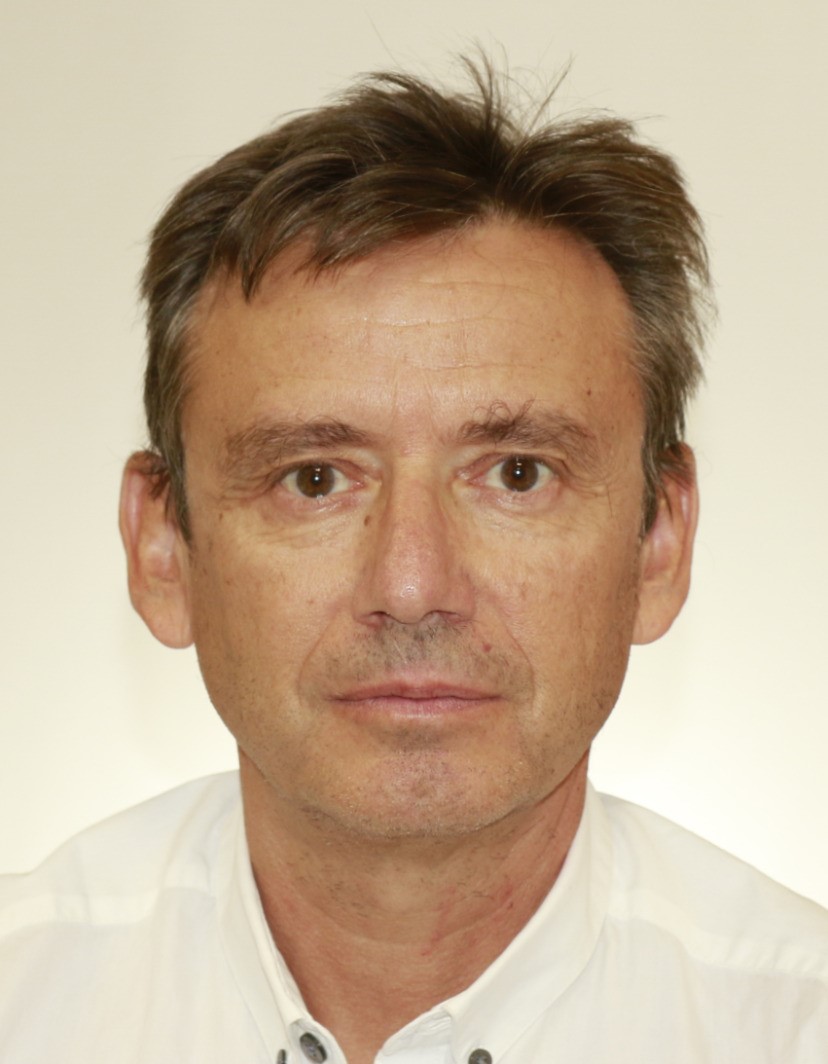
Louis Ricci is a professional in the domain of industrial combustion, currently serving as the R&D Director for the Energy | Combustion Business Unit of Fives. With an extensive engineering background around combustion, he coordinates R&D topics and decarbonation actions across three subsidiaries of the Fives group: Fives North American Combustion, Fives Pillard, and Fives ITAS, providing combustion systems in various industrial sectors. Promoting progress, development, and pragmatic innovation in thermal energy and environmental concerns around combustion topics is his core focus.
The necessity of energy transition presents new challenges, and he is proud to contribute to them. He holds a Mechanical and Energy Engineering degree from Arts et Métiers Engineering School of Paris (1990) and a MBA. With over 25 years of experience in combustion, he has technical expertise in combustion and pyro processes and is the inventor of multiple combustion systems. His key positions include R&D Director for the Energy | Combustion Business Unit of Fives group (since 2021), COO and CTO at Fives ITAS (2016-2018), CTO at Fives Pillard (2007-2016), and R&D Director at CNIM Environment France (2019-2021). His work is dedicated to improving efficiency and reducing emissions in industrial processes, a key target for his company and the broader industry.
Philip de Goey, Full Professor of Combustion Technology in the Power & Flow, Department of Mechanical Engineering at TU/e (Eindhoven University of Technology)
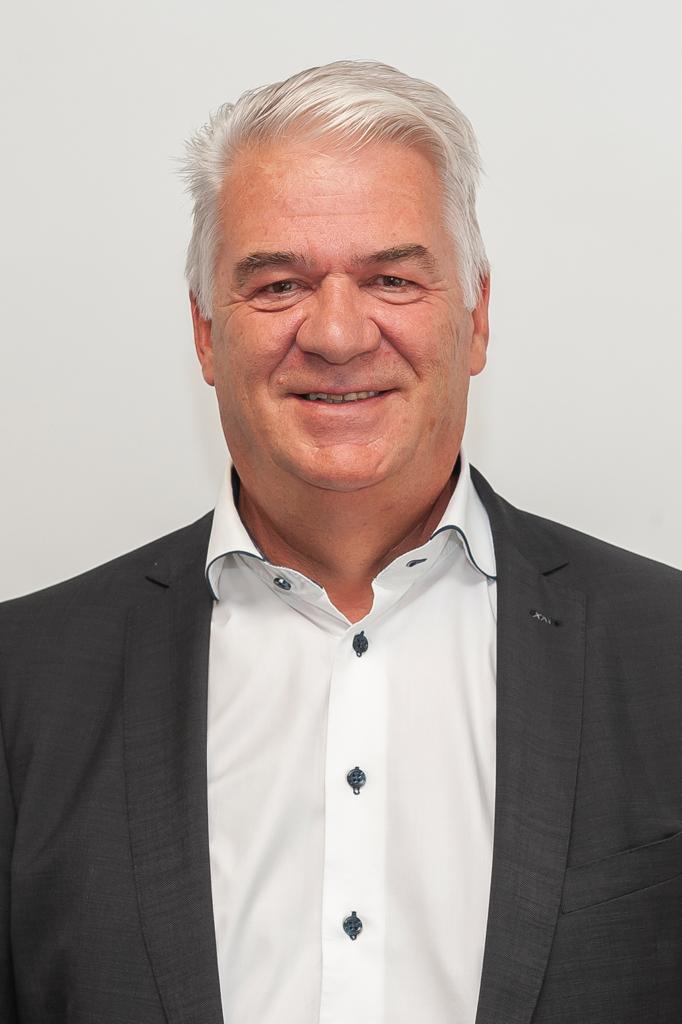
Philip de Goey is Full Professor of Combustion Technology in the Power & Flow section of the Department of Mechanical Engineering at TU/e. His areas of expertise include combustion science, technology and innovation, energy, thermo-fluids and heat transport technology. From 1988 to 1995, he was Assistant Professor and from 1995-2000 he was Associate Professor of combustion science in the Section Energy Technology at the Mechanical Engineering Department of the TU/e. Philip is active and well-known for numerical and experimental research in the field of laminar flames, turbulent flames, engines, gas turbines, flame thermo-acoustics, etc. The two most important achievements for which the chair is known are the invention of:
I) The Heat Flux Method, one of the most accurate methods known for measuring adiabatic burning velocities and used by at least 12 other groups in the world, which will be extended to metal fuels within the current project
II) The FGM method, a very efficient and accurate combustion modeling technique, also well recognized in the combustion community worldwide and also used by more than 30 groups/industries over the world.
Philip de Goey studied Theoretical Physics at Radboud University, Nijmegen and received his PhD from the Department of Physics of the TU/e for his thesis ‘Collision Phenomena in a Quantum Gas’. From 1999-2000 he was Visiting Professor at the Institut fur Technische Mechanik (Prof. Norbert Peters) at the RWTH-Aachen, Germany. Philip has been chairman of the Dutch Section of the Combustion Institute, chairman of the platform ‘Clean and Efficient Combustion’ of the Dutch Technology Foundation STW-SZV and program leader of the STW perspectief program Clean Combustion Concepts (2008-date). He has previously acted as Associate Editor and Editor of the Proceedings of the Combustion Institute, Coordinator and Colloquium Co-Chair of the colloquium on ‘Laminar Flames’ at the 31st and 32nd (Int.) Symposium on Combustion. Philip has (co-)authored over 400 scientific publications and is a scientific committee member of 10 international conferences.
Sean O’Reagain, Senior Adviser ‘Human Centricity’, Directorate-General for Research and Innovation, European Commission
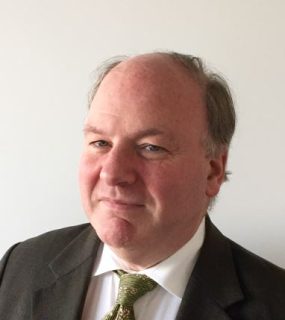
Sean O’Reagain has wide experience of the industrial dimension of European research and innovation policy and programmes. At the European Commission’s Directorate-General for Research and Innovation (DG RTD), he has managed the industrial technologies programme under Horizon Europe and has had responsibility for policy in relation to the digital dimension of industrial research and innovation.
Previously, he oversaw the development of the first public-private partnerships with industry at European level and, most recently, has guided the setting up of the Processes4Planet and Made in Europe partnerships. He has also had responsibility for initiatives in relation to the European Research Area and managed the evaluation of the Seventh Framework Programme.
Prior to joining DG RTD, he managed the benchmarking for competitiveness and innovation programme in the Commission’s DG GROW. Seán O’Reagain is currently Senior Adviser for Human Centricity and leads the initiative to embed human centricity in the European industrial research and innovation landscape.
Final Program
| Tuesday 17th June – Day 1 | |
| 08:30 | Arrival, registration & refreshments |
| 09:00 | Welcome: Sauro Pasini – IFRF President |
| 09:15 | Opening keynote: The role of combustion (and fuels) in a decarbonizing world – Jörg Leicher, Gas- und Wärme-Institut Essen e.V. (Presented by Christoph Wieland GWI/University of Duisburg-Essen) ) |
| 10:00 | Session A1: Rapid poster presentation (1 min per poster) |
| P01 | Impact of hydrogen combustion on NOx emissions – physical and regulatory considerations – J. Leicher, A. Giese, Gas- und Wärme-Institut Essen e.V |
| P02 | Pyrolysis of a single wood pellet between 600 and 1000 °C under high heating rates in a drop tube furnace: Experiments and modeling – A. Wittmann, C. Schönnenbeck, G. Gerandi, A. Brillard, J.-F. Brilhac, V. Tschamber, Université de Haute-Alsace |
| P03 | Development of a numerical simulation model for the investigation of a fuel-flexible ladle preheating system – H. Kaiser, J. Losacker, N. Schmitz, C. Wuppermann, A. Volkert, F. Firsach, D. Schreiber & R. Schweikle, RWTH Aachen University, Badische Stahlwerke GmbH, Badische StahlEngineering GmbH |
| P04 | Decarbonization by Improving Fired Heater Efficiency to ≥95 % – C. Riley, Sulzer Chemtech US Inc |
| P05 | Impact of dimethyl ether and other fuels on a test rig fired by a Swirl-Stabilized Cold Flow Burner – M. Diewald, N. Schmitz & C. Wuppermann, RWTH Aachen University |
| P06 | The Suntec Hydrogen and Natural Gas Mixer Solution – David Morin, Suntec Industries |
| P07 | Correlation between pollutant emissions and chemiluminescence measurements for the monitoring of MILD Combustion systems – V. Castro, G.B. Ariemma, P. Sabia, G. Sorrentino, R. Ragucci & M. de Joanno, STEMS, DICMaPI, University of Naples Federico II |
| P08 | Monte-Carlo approach for resolving transient heat transfer in annealing furnace – A. Sayed Kassem, V. Forest, V. Eymet, C. Coustet, S. Blanco, R. Fournier, P.-D. Nguyen, G. Ghazal & J.-L. Borean, ArcelorMittal Global R&D, Méso-Star, Laboratoire Laplace |
| P09 | Lean Premixed Combustion of producer gas: CFD Simulation and experimental tests of flame temperature and emissions – M. Renzi, M. Zubair Qureshi & M. Fatehi, Free University of Bolanzo |
| P10 | New lateral burner for 0 to 100 % hydrogen flexibility in steel reheating furnaces – H. Mohanna, J. Lumbreras, J. Losacker, S. Caillat, D. Mira & N. Schmitz, Fives Stein, BSC Spain, RWTH Aachen University |
| P11 | Feature selection and mode analysis for Sparse Sensing applied to MILD systems – V. Rosati, G.B. Ariemma, G. Sorrentino, R. Ragucci & M. de Joannon, Istituto di Scienze e Tecnologie per l’Energia e la Mobilità sostenibili −Università degli studi di Napoli Federico II |
| P12 | Glass Futures: A Research and Collaboration Platform for Decarbonising Glass and other Foundation Industries – Rob Ireson, Glass Futures |
| 10:20 | Refreshments & poster session |
| 11:00 | Parallel sessions |
| Session B1: Hydrogen | |
| Oxygen Enrichment Studies in Fuel Flexible Low Temperature Oxyfuel Burner – N. Thekkedath Madhu, M. Adendorff, K. Mabic, E. Iplik, S. Eckart, H. Krause, Linde GmbH, Institute of Thermal Engineering, TU Bergakademie Freiberg, Linde Sverige AB | |
| Production of Hot Hydrogen-Rich Syngas in Integrated Plants for Efficient Injection in the Blast Furnace and CO2 Mitigation – E. Faraci, D. Garot, A. Oblanca Gutiérrez, C. Morelli, L. Micheletti, Rina Consulting, CRM Group, ArcelorMittal Global R&D Paul Wurth SMS Group (Presented by Davide Ressegotti, Rina Consulting S.p.A.) | |
| H2 Firing Challenges from Industry Perspective – S. Mania, Shell Global Solutions international B.V. |
|
| Session C1: Process Heating | |
| Reducing carbon intensity of industrial heating processes using hydrogen cofiring. – A. Heeley, K.N. Finney, J. Szuhanzski, A. Gheit & M. Pourkashanian, Energy Innovation Centre – University of Sheffield | |
| Experimental Assessment of Nitrogen Oxide Emissions in Hydrogen-Based Coal Substitution for Iron Ore Induration in Rotary Kilns – S. Colin, F. Normann, C. Fredriksson, K. Andersson, Division of Energy Technology, Chalmers University of Technology, LKAB | |
| Development of an innovative “foreheart” regenerative furnace for molten glass – I. Luzzo, F. Cirilli, M. Marchegiani, L. Tosini, Rina Centro Sviluppo Materiali Dalmine Italy, Rina Centro Sviluppo Materiali Roma Italy, Bormioli Luigi Italy | |
| 12:00 | Lunch |
| 13:00 | Keynote: Heating GreenSteel: A Crossroad of Hydrogen, Ammonia, Biofuels, Electricity, Heat Recovery, and CCS – Anna Domènech, Head of Innovation & Industrial Engineer at Celsa |
| 13:45 | Parallel sessions |
| Session D1: Measurement Technology | |
| Application of digital cameras to increase our knowledge of hydrogen combustion in rotary kilns – F.J. Triana de las Heras, F. Normann, K. Andersson, A. Gunnarsson, Division of Energy Technology, Chalmers University of Technology | |
| 3D Tomographic Imaging of Flame Emission in Industrial Thermal Processes – C.T. Foo, M. Röder, F.J.W.A. Martins, P. Pietsch, A. Giese & K. Mohri, EMPI – Tomography, EMPI – Fluid Dynamics, CENIDE – University of DuisburgEssen, Gas- und Wärme-Institut Essen e.V., Gastechnologisches Institut | |
| Measurement of mass flow rate of pneumatically conveyed pulverised biomass through acoustic emission detection and electrostatic sensing – X. Zeng, Y. Yan, School of Control and Computer Engineering – North China Electric Power University, Hangzhou International Innovation Institute – Beihang Universit | |
| Session E1: Emerging technologies | |
| The effect of coating layer formation on heat transfer conditions in a thermal plasma heated rotary kiln – A. Fakt, I. Qasim, A. Gunnarsson, F. Normann, B. Wilhelmsson & K. Andersson, Department of Space, Earth and Environment – Chalmers University of Technology, Heidelberg Materials Cement Sverige AB | |
| Cement Production Using A 300 kWel Plasma System – An Experimental Study Of The Thermal Behavior In A Pilot-Scale Rotary Kiln – I. Qasim, A. Gunnarsson, F. Normann, K. Andersson, B. Wilhelmsson, A. Zether, Division of Energy Technology – Chalmers University of Technology, Heidelberg Materials Cement Sverige AB, Department of Applied Physics and Electronics – Umeå University | |
| Electrification of the glass making process through plasma assisted combustion – Nerijus Striūgas, Lithuanian Energy Institute | |
| 14:45 | Refreshments & poster session |
| 15:30 | Parallel sessions |
| Session F1: Ammonia | |
| Heat transfer features of no-carbon energy carriers for the hard-to-abate sector decarbonization – G.B. Ariemma, T. Esposito, G. Sorrentino, P. Sabia, G. Langella, R. Ragucci & M. de Joannon, STEMSCNR, University of Naples Federico II | |
| Amburn – Ammonia for LPG Replacement in medium size boilers – A. Valera-Medina, S. Mashruk & J. Davies, Centre of Excellence on Ammonia Technologies – University of Cardiff | |
| Session G1: Solid Fuels | |
| Advances in NOx and SOx Absorption Process: Updates on Reaction Mechanism – R. Citra Aprilia, J. Johansson & F. Normann, Department of Space, Earth and Environment – Chalmers University of Technology | |
| Emission Reduction and Efficiency Gains with RJM Ultra-Low NOx CleanAir™ Coal – J. Woodhead, T. Beeley, RJM International | |
| 16:30 | End of day 1 |
| Wednesday 18th June – Day 2 | |
| 08:30 | Arrival & refreshments |
| 09:00 | Keynote: Main industrial combustion applications and their drivers – Louis Ricci, R&D Director, Fives Combustion Business Unit |
| 09:45 | Parallel sessions |
| Session A2: Process heating | |
| Development of hydrogen technologies for the industrial decarbonisation – J. Hercog, Institute of Power Engineering – National Research Institute, Center for Hydrogen Technologies | |
| The impact of hydrogen addition to flameless oxyfuel burner on temperature and heat flux distribution in a pilot-scale furnace – K. Mabic, M. Adendorff, & N.T. Madhu, E. Iplik, K. Kyprianidis, Linde GmbH, Mälardalen University Sweden, Linde Sverige AB | |
| Advancements in Green Hydrogen Applications for Sustainable Steel Production – M. Bissoli, S. Nardi, D. Astesiano & E. Malfa, Tenova SpA | |
| Session B2: Hydrogen | |
| H2 combustion, from R&D developments to industrial demonstration – N. Riaute & J. Caudal, Air Liquide | |
| New roof burner for 0 to 100 % hydrogen flexibility in reheating furnaces – H. Mohanna, S. Caillat, P. Sedmak & M. D. Le, Fives Stein | |
| An integrated approach of the potential of hydrogen combustion for the decarbonization of tiles and bricks industry – C. Poirier, D. Honoré, C. Lacour, O. Torres, S. Houidi, L. Blanchard & O. Lebasle, CTMNC, CORIA – CNRS, CLEIA | |
| 10:45 | Refreshments |
| 11:15 | Parallel sessions |
| Session C2: Modelling | |
| CFD Modelling of Sustainable Industrial Combustion in Glass Furnaces: Validation and Application on Different Scenarios – C. Cravero, A. Lamberti, D. Marsano, G. Milanese & B. Sommariva, Dipartimento di Ingegneria Meccanica, University of Genoa | |
| CFD simulations of lean steel gas for valorisation in steel slab reheating furnace – A. Sayed Kassem, J.-L. Tanguy, P. Vienot, C. Deutsch, G. Ghazal & P.-D. Nguyen, ArcelorMittal | |
| Session D2: Heat recovery & carbon capture | |
| Flue gas treatment for heat recovery – L. Pasquier, L. Payet & E. Carlu, Alliance Allice | |
| An experimental study on the stabilization limits of methane and biogas oxyflames under CO2 dilution for CCS applications – L. Pirateque Henao, B. Lecordier, C. Lacour, A. Cessou & D. Honoré, INSA Normandie Université | |
| 12:15 | Lunch |
| 13:15 | Keynote: The Iron Power Cycle – Philip de Goey, Eindhoven University of Technology |
| 14:00 | Session E2: Metal combustion – Chaired by Philip de Goey (TU/e) |
| Aluminium-steam reaction in a swirled stabilized flame: a new way for hydrogen production – J.F. Brilhac, C. Schönnenbeck, O. Allgaier, V. Tschamber, U.S. Schubert, E. Schweers, N. Windhab & L. Portugues, Université de Haute-Alsace, Energy-13 GmbH, CEEC Jena Friedrich Schiller University | |
| New Insights into Iron Particle Combustion – Zak Mansouri, Nottingham Trent University | |
| 14:45 | Refreshment break |
| 15:00 | Walk to coach | Please note: Tour places are limited for health and safety reasons and were allocated on a first-come, first-served basis at the time of ticket purchase |
| 15:15 | Coaches travel to Energy Innovation Centre, University of Sheffield |
| 15:45 | Tours of EIC – Energy Innovation Centre |
| 17:15 | Coaches return to Sheffield city centre |
| 19:00 | Drinks reception and gala dinner at Inox – University of Sheffield, Durham Road, Sheffield S10 2TG |
| 22:00 | End of day 2 |
| Thursday 19th June – Day 3 | |
| 08:30 | Arrival & refreshments |
| 09:00 | Keynote: Industry 5.0: Towards a Sustainable, Human-Centric and Resilient Industrial Transition – Sean O’Reagain, Directorate-General for Research and Innovation, European Commission |
| 09:30 | Introduction to Demonstrator Projects Session – Nico Schmitz (RWTH Aachen) & Sébastien Caillat (Fives Stein) |
| 09:35 | Demonstrator project marketplace with refreshments |
| D01 | FlexHeat2Anneal: Fuel Flexibility in Burner-Radiant Tube Systems for Continuous Annealing Lines – E. Busson, M. Mühlbach, N. Schmitz, J.G. Wünning & C. Wuppermann, Department for Industrial Furnaces and Heat Engineering – RWTH Aachen University, WS Wärmeprozesstechnik GmbH |
| D02 | HyInHeat: Hydrogen Technologies for Decarbonization of Industrial Heating Processes – D. Muren, N. Schmitz, J. Losacker, L. Piquard – Linde, RWTH Aachen, Constellium Technology Center |
| D03 | ZeroCO2-Glass: Decarbonization of Container Glass Melting with Hybrid Heating and Hydrogen-Oxyfuel Combustion – F. Ott, S. Pietsch, N. Schmitz, S. Thiele, D. Orzol & C. Wuppermann, Department for Industrial Furnaces and Heat Engineering – RWTH Aachen University, IPGR e.V. |
| D04 | DevH2forEAF: Results from the Experimental Campaigns with the H2 Oxyfuel Burner for Electric Arc Furnaces (EAF) – E. Faraci, I. Luzzo, A. Provesi, J. Greguoldo, F. Vecchiet, G. Rinaldi, F. Ferrari, F. Nastro, D. Gaspardo & D. Olivieri, Rina Consulting CSM, SMS Group S.p.a., NipponGases S.p.a., Ferriere Nord Zona Industriale |
| D05 | HyTecHeat: HYbrid TEChnologies for sustainable steel reheating IFRF 2025: HyTecHeat project – F. Cirilli, I. Luzzo, G. Jochler, N. Zacchetti, S. Zanlucchi, D. Astesiano, M. Bissoli, E. Malfa, I. Morena, E. Salvo, P. Marrelli & G. Ferri, Rina Consulting CSM, Tenova, Industrie De Nora, Snam S.p.A. |
| D06 | CH0C project: A low-carbon dioxide and low-NOx oxy-fuel boiler pilot – L. Ricci, S. Juma & L. Tardelli, Fives Pillard, TotalEnergies OneTech, NaTran |
| D07 | TwingHy: Digital Twins for Green Hydrogen Transition in Steel Industry – J. Losacker, N. Schmitz, C. Wuppermann, S. Caillat, H. Mohanna, J. Visús Pool, J. Jiménez, S. Shubham, J. Lumbreras, D. Mira, J. Falk & J. Lindwall, Department for Industrial Furnaces and Heat Engineering – RWTH Aachen University, Fives Stein, Nippon Gases España, Celsa Group, BSC, Swerim AB |
| D08 | H2Glass: Special demo-project session participation of H2GLASS – Chiara Caccamo, Sintef |
| D09 | H2Al: Full-scale demonstration of replicable technologies for hydrogen combustion in Hard-to-Abate Industries: The aluminium use-case – M. Lubrano Lavadera, A. Parente, ULB, H2AL consortium |
| 11:00 | Topic-Oriented Panel – Moderated by Sébastien Caillat and Karen Finney |
| 1. Burner technology & combustion equipment 2. Emissions 3. Impact on product/process |
|
| 12:30 | Event summary and closing remarks – Prof. Mohamed Pourkashanian OBE, IFRF General Secretary and EIC Managing Director |
| 12:45 | Lunch & networking |
| 15:00 | Conference end |
Instruction for authors
Poster session (day 1)
- The maximum poster size allowed is A1 vertical format. Pins or Velcro will be available to install the posters on indicated stands. Please install the poster just after registration.
- Authors are asked to prepare a 1-minute presentation for a brief oral presentation just before the poster session.
Please send a distributable version of the poster in pdf format, and your presentation slide in pdf or pptx format to administration@ifrf.net by Monday 2nd June, indicating session name, poster number (see program above) and short title in the subject of the message.
Attention: The authors will not be allowed to connect their own device to the projection system.
Oral presentations (day 1 & 2)
Each oral presentation will have a 15-minute slot, followed by a 5-minute Q&A session.
Authors are requested to send their presentation prior to the meeting, by Monday 2nd June, in pdf or pptx format to administration@ifrf.net indicating session name and short title in the subject of the email. File should be named as IFRF-2025-Presenting-
Attention: The authors will not be allowed to connect their own device to the projection system.
Demonstrator Project Marketplace (day 3)
Each project will have a stand with a large screen to connect your own PC (HDMI) to show a comprehensive overview about your project (5-6 slides rotating presentation), a stand to install a poster, and a table for eventual brochures.
Project representatives are asked to prepare a presentation to give insights about: 1. Burner technology & combustion equipment, 2. Emissions, 3. Impact on product/process, max. 2 slides per topic, total 6 slides, to be presented during the Topic oriented Panel. Please contact administration@ifrf.net if you have not received the instructions.
Attention: The authors will not be allowed to connect their own device to the projection system for the panel.
Registration
Registration is now open – book your tickets on Ticket Tailor.
We will do our best to fulfil your requirements to allow you to fully participate in this event. Please let us know if you have any special requirements such as dietary needs, the need for a private room during the day, handouts in advance and/or in alternative formats such as Braille or large print, hearing loops, wheelchair access, high-backed chair etc.
Cancellation policy
If IFRF should have to postpone an event, IFRF shall notify you as soon as possible and provide you with a new date for the delivery of the event.
If IFRF should have to cancel the event, IFRF shall provide you with a full refund of the ticket price only.
Should you wish to cancel any booking of an event in advance of the event date, notice should be sent to administration@ifrf.net as soon as possible.
Should you wish to cancel any booking of an event in advance of the event date, you will be entitled to the following refund:
- More than 28 days before the event date: 100%
- Between 22 and 28 days before the event date: 75%
- Between 15 and 21 days before the event date: 50%
- 14 days or less before the event date: 0%
Call for abstracts
We invite abstracts (300 words) for oral and poster papers from researchers, practitioners, and industry professionals. Selected abstracts will be invited to present their work at the conference.
Topics of interest include, but are not limited to:
- Advances in combustion technology for zero emissions and decarbonisation
- Sustainable industrial practices in hard-to-abate sectors such as power generation, propulsion, cement, steel, glass, etc.
- Pollutant and greenhouses gases emission reduction and control
- Low carbon (eg. hydrogen, ammonia) and alternative fuels (eg. metals, SAF)
- Thermal process optimisation
- Innovations in industrial combustion systems
- Measurement and sensing techniques for combustion efficiency, control and emissions
- Modelling and AI tools for the digitalisation of energy-intensive industries
Abstracts cannot be submitted any more.
Special session on significant demonstration projects
A half-day session of the conference will be dedicated to the presentation of significant demonstration projects with the objective of reducing greenhouse gas emissions in sectors that are hard to abate, including steel, cement, lime, non-ferrous, glass or power generation. The session will feature cutting-edge technologies, including oxy-combustion, low-carbon fuels such as hydrogen, and carbon capture and use or storage. It will highlight innovative solutions to the challenge of reducing greenhouse gas emissions.
We invite representatives from ongoing and completed projects with advanced Technology Readiness Levels (6-8) to submit abstracts for the presentation of their findings. Projects co-funded by the EU and national initiatives are encouraged to participate. The format will include stand/poster presentations of the general vision and scope of the projects, oral presentations of technical combustion related challenges and solutions, and a roundtable discussion, facilitating an exchange of technical know-how and collaborative ideas.
Tour (Tour now full)
On Wednesday 18th June, from 15:30 to 17:30, delegates have the option of attending a tour of the Energy Innovation Centre (EIC) facilities. The EIC is a world-leading pilot-scale research centre which works with industry to test and develop green energy solutions for a decarbonised future. It is one of the largest and best-equipped zero-carbon energy research and development facilities in Europe.
With full capability to test, optimise and demonstrate technologies at pilot-scale, EIC has everything needed for commercially focused, mission-oriented research and development. Its expertise covers hydrogen, bioenergy, carbon capture, utilisation and storage (CCUS) and sustainable aviation fuels (SAF), as well as renewables and the wider energy system. The tour will allow you to see many of the exciting pieces of equipment based on site, as well as hear from its resident experts.
If you are interested in joining the tour, please confirm this on your registration when prompted. (Tour now full)
Journal publications
We are pleased to announce that abstract authors will have the opportunity to publish in a special edition of one of the following reputed journals; Frontiers (www.frontiersin.org) and Measurement: Energy (www.sciencedirect.com/journal/measurement-energy). More information on full paper format and submission dates to follow in due course.
Transport
Sheffield Town Hall is located in the heart of the city centre, within walking distance of rail links, park & ride facilities and city centre parking. Sheffield is the perfect location for both national and international events with fast transport links to the West Country, North, South, London and airports. Direct trains from London St Pancras International to Sheffield take less than 2 hours, European participant are encouraged to travel by train.
Nearest train station: Sheffield station, Sheaf Street, Sheffield, South Yorkshire, S1 2BP. From there, the Town Hall is a 7-10 minute taxi ride, with cabs available outside the station or by pre-booking, or a 9 minute walk.
Tram: Sheffield has a tram system which can take you to links across the city. The closest tram stops to the Town Hall are Cathedral, Castle Square, City Hall and West Street tram stops.
By car and taxi: You can order taxis in Sheffield via Uber, Bolt or the local service Veezu (+44 01179 252626 or via the app). If you are planning to drive, information about city centre car parking can be found here.
Nearest airports: The closest airports to Sheffield are Manchester, Leeds Bradford, and East Midlands. Manchester Airport is the best option for Sheffield, with easy onward train travel. To reach Sheffield from Manchester Airport, take the train from Manchester Airport to Manchester Piccadilly, then change to take a train to Sheffield.
Accommodation
Sheffield, particularly the city centre, is home to a range of hotels with easy access to the Town Hall. We have put together specially-created list of hotels with delegate rates for this event.
Reservations can be made using the web address below until 28 days prior to the event start date. On this date some hotels will choose to leave unsold rooms on the system, or they may remove them. The site will close fully 14 days prior to the event start date. After this date contact details for hotel will be given for last minute enquiries. As more bookings are made, this encourages hotels to leave their rooms on the system for as long as possible, so please book early where possible.
If you are interested in a block booking for a group, please get in touch with us at administration@ifrf.net and we will coordinate this for you.
Booking website: https://book.passkey.com/e/
Conference sponsorship
The IFRF Conference 2025 will bring together leading researchers, industry experts, and students from across the world to exchange ideas, explore cutting-edge research, and foster collaboration in their field. Conference sponsors will have the opportunity to connect with key decision-makers, showcase their brand to a global community of scientists and engineers, and contribute to the advancement of combustion research. Our sponsorship packages offer a variety of benefits tailored to meet your specific marketing objectives, elevate your brand and strengthen your industry presence.
If you are interested in sponsoring the IFRF Conference 2025, please contact Siobhan Green administration@ifrf.net for more information.
About our event sponsors
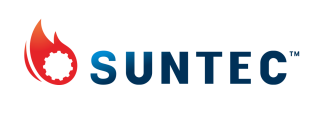
![]() Suntec Industries – For the last 40 years SUNTEC has been a leading manufacturer of gear pumps and gas blocks, specialising in low-carbon fluid control. SUNTEC’s development of technologies compatible with biofuels and hydrogen directly align s with the conference theme – ‘sustainable and safe industrial combustion’ – making their sponsorship a natural and highly valuable partnership.
Suntec Industries – For the last 40 years SUNTEC has been a leading manufacturer of gear pumps and gas blocks, specialising in low-carbon fluid control. SUNTEC’s development of technologies compatible with biofuels and hydrogen directly align s with the conference theme – ‘sustainable and safe industrial combustion’ – making their sponsorship a natural and highly valuable partnership.
![]() Sulzer Chemtech – a global leader in critical applications for core infrastructure and processes for large essential industries around the world. The company ensures the security, quality and durability of critical goods and services by supporting energy security, natural resource management and efficiencies in process industries. The integrated solutions offered add significant value by enabling energy efficiency, carbon emissions and pollution reduction, and process efficiency improvements.
Sulzer Chemtech – a global leader in critical applications for core infrastructure and processes for large essential industries around the world. The company ensures the security, quality and durability of critical goods and services by supporting energy security, natural resource management and efficiencies in process industries. The integrated solutions offered add significant value by enabling energy efficiency, carbon emissions and pollution reduction, and process efficiency improvements.
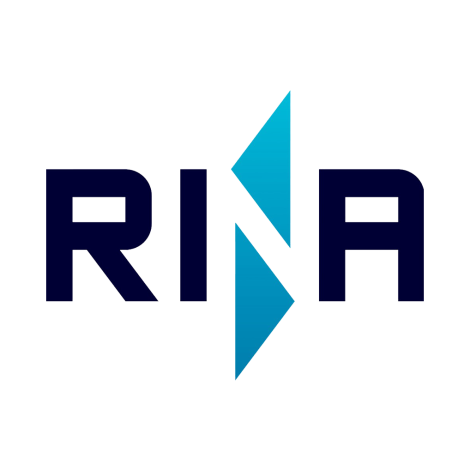 Rina – a trusted global company that offers a wide range of services across the Energy, Marine, Infrastructure & Mobility, Industry, Research & Development, Certification and Real Estate sectors. With over 200 offices in 70 countries and a team of 6,200 talented professionals, RINA is a knowledge-based company built on the highly specialised expertise of its people. Its multidisciplinary capabilities support clients in managing complexity and addressing technical, regulatory and sustainability challenges.
Rina – a trusted global company that offers a wide range of services across the Energy, Marine, Infrastructure & Mobility, Industry, Research & Development, Certification and Real Estate sectors. With over 200 offices in 70 countries and a team of 6,200 talented professionals, RINA is a knowledge-based company built on the highly specialised expertise of its people. Its multidisciplinary capabilities support clients in managing complexity and addressing technical, regulatory and sustainability challenges.
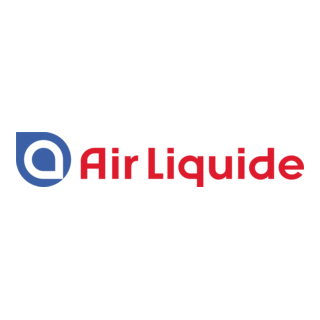
Air Liquide – a world leader in gases, technologies and services for industry and health. It is present in 75 countries with approximately 66,400 employees and serves more than 3.8 million customers and patients. Its ambition is to deliver long term performance and to contribute to a more sustainable world facing today’s and tomorrow’s challenges: energy and environmental transition, transformation of healthcare and technological progress.
Organising committees
Scientific programme committee
- Sébastien Caillat, Fives Group
- Benedicte Cuenot, Safran
- Mario Ditaranto, Sintef
- Greg Kelsall, IFRF
- Jörg Leicher, GWI
- Sauro Pasini, IFRF
- Mohamed Pourkashanian, IFRF
- Anna Pubill Melsió, Air Liquide
- Nico Schmitz, University of Aachen
- Nils Skoglund, University of Umeå
- Giancarlo Sorrentino, CNR
- Yong Yan, Beihang University
- Dave Schalles, Bloom Engineering
- Philip de Goey, Eindhoven University of Technology
- Siobhan Green, IFRF/Energy Innovation Centre
Organisational committee
- Greg Kelsall – IFRF
- Sauro Pasini – IFRF
- Melissa Ayres – IFRF/Energy Innovation Centre
- Sébastien Caillat – IFRF/Fives Group
- Siobhan Green – IFRF/Energy Innovation Centre
- Mohamed Pourkashanian – IFRF/Energy Innovation Centre
- Rhianne Spurden – IFRF/Energy Innovation Centre
- Niamh Haughey – IFRF/Energy Innovation Centre
Additional Event Info
Sheffield Town Hall
Pinstone Street
Sheffield
S1 2HH
